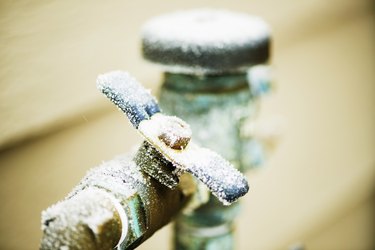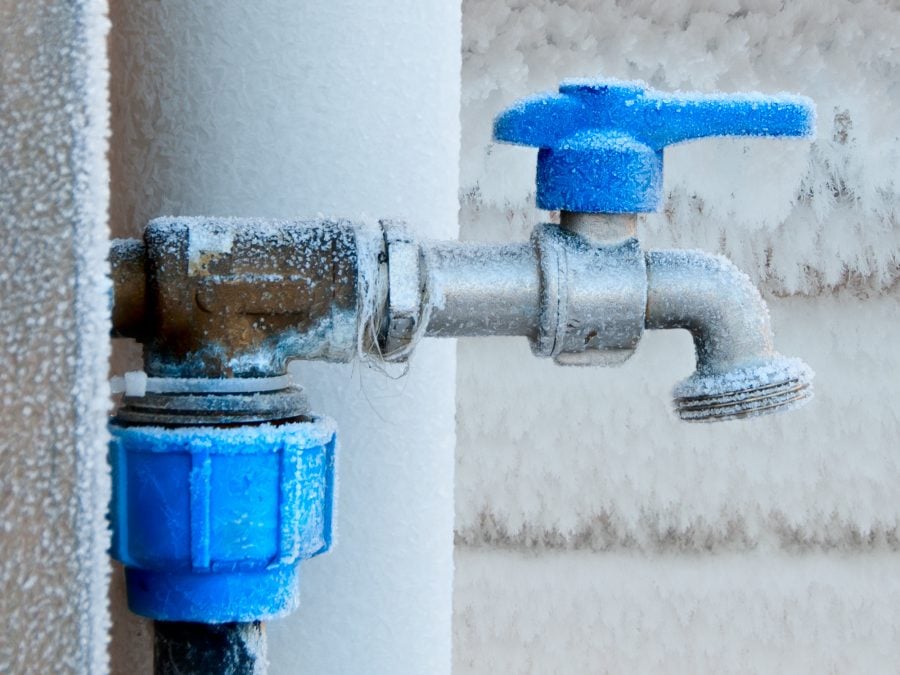This article down the page in relation to Helpful Tips to Prevent Frozen Pipes this Winter is amazingly informative. You should keep reading.

Winter can ruin your plumbing, especially by freezing pipelines. Here's exactly how to avoid it from happening and what to do if it does.
Intro
As temperature levels decrease, the danger of icy pipelines increases, possibly bring about costly repairs and water damages. Recognizing how to stop icy pipes is important for homeowners in chilly climates.
Prevention Tips
Protecting susceptible pipes
Wrap pipes in insulation sleeves or use warm tape to secure them from freezing temperature levels. Concentrate on pipes in unheated or exterior areas of the home.
Heating methods
Maintain indoor rooms appropriately warmed, specifically locations with pipes. Open up cabinet doors to permit warm air to flow around pipes under sinks.
How to recognize frozen pipes
Seek lowered water circulation from taps, uncommon odors or sounds from pipes, and visible frost on revealed pipelines.
Long-Term Solutions
Architectural modifications
Take into consideration rerouting pipes away from outside walls or unheated locations. Include additional insulation to attic rooms, basements, and crawl spaces.
Updating insulation
Purchase high-grade insulation for pipelines, attics, and wall surfaces. Proper insulation helps maintain constant temperature levels and decreases the threat of icy pipes.
Protecting Exterior Pipes
Garden hose pipes and exterior faucets
Separate and drain yard hoses prior to winter season. Set up frost-proof spigots or cover exterior taps with insulated caps.
Comprehending Frozen Pipes
What triggers pipes to ice up?
Pipelines ice up when subjected to temperature levels below 32 ° F (0 ° C) for expanded durations. As water inside the pipelines freezes, it broadens, putting pressure on the pipeline wall surfaces and possibly creating them to rupture.
Risks and damages
Frozen pipelines can cause water system disturbances, residential property damage, and pricey repair services. Burst pipes can flooding homes and cause comprehensive structural damages.
Indications of Frozen Pipeline
Determining frozen pipelines early can avoid them from bursting.
What to Do If Your Pipes Freeze
Immediate actions to take
If you think icy pipelines, keep taps open up to eliminate stress as the ice thaws. Utilize a hairdryer or towels taken in warm water to thaw pipes gradually.
Conclusion
Protecting against frozen pipes requires aggressive actions and fast feedbacks. By understanding the reasons, signs, and preventive measures, home owners can secure their pipes during cold weather.
Helpful Tips to Prevent Frozen Pipes this Winter
UNDERSTANDING THE BASICS: WHY PIPES FREEZE AND WHY IT’S A PROBLEM
Water freezing inside pipes is common during the winter months, but understanding why pipes freeze, and the potential problems it can cause is crucial in preventing such incidents. This section will delve into the basics of why pipes freeze and the associated problems that may arise.
THE SCIENCE BEHIND FROZEN PIPES
When water reaches freezing temperatures, it undergoes a physical transformation and solidifies into ice. This expansion of water as it freezes is the primary reason pipes can burst. As the water inside the pipe freezes, it expands, creating immense pressure on the walls. If the pressure becomes too great, the pipe can crack or rupture, leading to leaks and water damage.
FACTORS THAT CONTRIBUTE TO PIPE FREEZING
Low Temperatures: Extremely cold weather, especially below freezing, increases the risk of pipes freezing. Uninsulated or Poorly Insulated Pipes: Pipes located in unheated areas, such as basements, crawl spaces, or attics, are more prone to freezing. Insufficient insulation or lack of insulation altogether exacerbates the problem. Exterior Wall Exposure: Pipes running along exterior walls are susceptible to freezing as they encounter colder temperatures outside. Lack of Heating or Temperature Regulation: Inadequate heating or inconsistent temperature control in your home can contribute to frozen pipes. PROBLEMS CAUSED BY FROZEN PIPES
- Pipe Bursting: As mentioned earlier, the expansion of water as it freezes can cause pipes to burst, resulting in significant water damage.
- Water Damage: When pipes burst, it can lead to flooding and water damage to your property, including walls, ceilings, flooring, and personal belongings.
- Structural Damage: Prolonged exposure to water from burst pipes can compromise the structural integrity of your home, leading to costly repairs.
- Mold and Mildew Growth: Excess moisture from water damage can create a favorable environment for mold and mildew growth, posing health risks to occupants.
- Disrupted Water Supply: Frozen pipes can also result in a complete or partial loss of water supply until the issue is resolved.
WHY CERTAIN PIPES ARE MORE PRONE TO FREEZING
- Location: Pipes located in unheated or poorly insulated areas, such as basements, crawl spaces, attics, or exterior walls, are at higher risk of freezing.
- Exterior Pipes: Outdoor pipes, such as those used for irrigation or exposed plumbing, are particularly vulnerable to freezing as they are directly exposed to the elements.
- Supply Lines: Pipes that carry water from the main water supply into your home, including the main water line, are critical to protect as freezing in these lines can affect your entire plumbing system.
- Underground Pipes: Pipes buried underground, such as those connected to sprinkler systems or outdoor faucets, can be susceptible to freezing if not properly insulated.
https://busybusy.com/blog/helpful-tips-to-prevent-frozen-pipes-this-winter/

As a devoted person who reads about Winter Plumbing Precautions: Preventing Frozen Pipes, I imagined sharing that piece of content was smart. Be sure to pause to distribute this page if you appreciated it. I enjoy your readership.
Get Quote Now